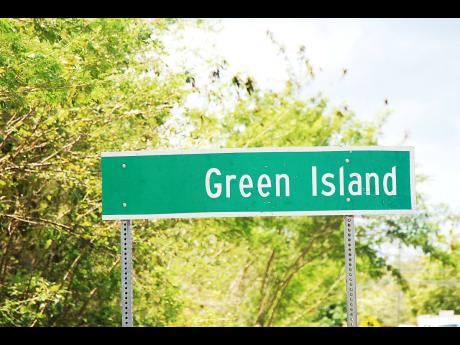Capacity concerns - Green Island infrastructure seen as inadequate for Princess mega hotel
Concerns are being raised as to whether the small community of Green Island in Hanover can handle the pressures that a mega resort, as proposed by the Princess Hotel chain, will bring to community services that are already seen as inadequate.
The lack of infrastructure and potential loss of virgin mangroves were among the concerns raised at a town meeting on the project in Hanover.
Project documents put the population of Green Island at 3,100 residents in 1,100 households.
The hotel will add 2,037 rooms and include a casino, which means that at any point in time, the number of guests served by the hotel could equate to or even exceed the populace of Green Island. But community groups also anticipate that persons employed to the hotel will need access to services such as education and health that Green Island is ill-equipped to deliver.
“This is not an eco-resort. A sea wall and a casino is not an eco-resort,” charged Suzanne Stanley, CEO of the Jamaica Environment Trust, JET, a long-standing nature lobby group, while highlighting the large scale of the project and its potential environmental impact at the public meeting held at the Green Island High School in Hanover in March.
Stanley raised concerns about the transition from a conservation area to a series of engineered and constructed beaches for the hotel. In the process, several acres of mangroves and seagrass are slated for removal. Stanley said that in her research on the property, documents kept referring to the hotel as an eco-resort.
“Eco-resorts do not involve dredging, the removal of mangroves, the removal or damaging of coral reefs, and the removal of seagrass,” she countered, in reference to the Coastal Design and Environmental Impact Assessment report on the hotel development submitted by Smith Warner International Limited in October 2019. It said that 100 acres of the 186-acre property would remain covered by mangroves after the hotel is developed.
Another assessment published in January 2020, prepared by Econexus Limited, indicated that the additional carbon emissions arising from an expected loss of mangroves in the area would cost the public some US$76,000 (J$11 million) a year. That report was entitled ‘The Ecosystem Service and Natural Resource Valuation Assessment of Princess Hotel and Resorts Hanover’.
Sophie Grizzle, a hotel manager and member of both the Negril Chamber of Commerce and the Jamaica Hotel and Tourist Association, raised concerns about health, schooling, and water services at the forum.
“Now, Green Island is going to double in size within the next five to six years. This school doesn’t even have enough [classrooms] to put the kids in. We are talking about a better clinic. We don’t have the infrastructure, we don’t have the roads, we don’t have the police force, we don’t have the sanitation, everything,” she said.
Member of Parliament Ian Hayles said in response to the concerns that the area would see improvements over time.
In relation to water services, he noted that the Logwood system, which was improved at a cost of $1.2 billion some five years ago to bring more water from Great River into Hanover, should be serving the Green Island corridor.
“The problem, though, is that we have not fully taken off the Logwood supply system as yet from this area in ensuring that West End and surrounding communities receive full, adequate supplies of water,” he said. West End is at the tailend of Negril.
Hayles also said that he was in talks with Minister of Health and Wellness Christopher Tufton on improving the health facilities in the surrounding area. This includes attempts to develop a hospital in Lucea and a health facility in Green Island.
The mega resort plan, developed by Spanish hotel chain Princess Hotels and Resorts Limited, includes hotel rooms, overwater villas, and a casino, according to Caribbean representative Rafael Millan, who spoke at the meeting.
Operating a casino in Jamaica requires special permits, initially from the Ministry of Finance and later the Casino Commission. Two other casino resort projects that got preliminary approvals several years ago for other geographic zones of Jamaica – Montego Bay and Trelawny – failed to execute their projects.
Princess will construct 1,012 rooms in phase one and 1,025 rooms in phase two.
“We plan to do this in an orderly way, respecting every single legal and environmental aspect, according to Jamaican law,” said Millan. “We plan to do this in close co-operation with regional citizens, the Hanover citizens, and our aspiration is to be able to bring over, humbly, our business and to be able to work with you,” he said.
The resort company previously told the Financial Gleaner that it expects to spend as much as US$500 million on the development. The Spanish chain operates hotels in the Canary Islands, Mexico, and the Dominican Republic.

